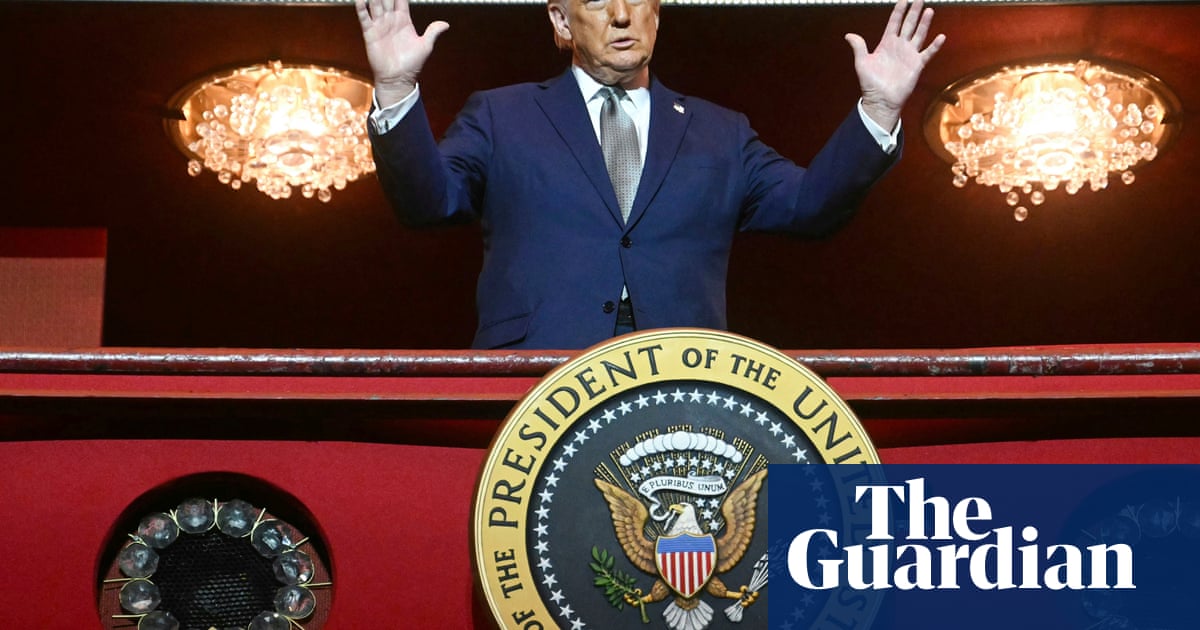The Kennedy Center for the Performing Arts has reportedly seen subscription sales fall by about $1.6m – or roughly 36% – compared with 2024 amidDonald Trump’s having appointed himself to lead the institution.
The center has made less than $2.7m as of the start of June through subscriptions to its theater, dance, classical and other seasons of performances. The center had generated more than $4.4m by this point a year earlier, according to data obtained by theWashington Post.
The Post says that sales data was collected and shared by former Kennedy Center employees. The data was confirmed by a current staff member, who spoke to the Post on the condition of anonymity.
Though the subscription data is only one source of revenue for the center, it could serve as an overall indicator of public standing. Other sources of revenue include donations, individual ticket sales and government funding. The Washington DC-based center’s budget for operation was $268m in 2024. About $125m of that came from earned revenue, such as ticket sales, the Post reported.
The employee who leaked the data told the paper: “We understand providing information like this can be seen in a bad light. But we feel that it is necessary to show that mismanagement by the new leadership is becoming a real problem for the health of the organization.”
The employee added that “we feel that we no longer have a choice but to force complete transparency with the public” after several staffers were ignored or outright fired for their opinions.
Trump’sappointing himselfto be the chairperson of the Kennedy Center in February – less than a month into his second presidency – has ensnared the institution in controversy. He has since reshaped the center’s governing board with his own appointees. And the center’s former president, Deborah Rutter, has been replaced by the Trump ally Richard Grenell.
Aboycott by Les Misérables cast memberswas the latest in a string of stars pulling out of shows and positions at the center since Trump assumed control. Several shows have been called off, including a stop of the Hamilton tour that was canceled by the production itself, and Finn, a coming-of-age story about a young shark, which was canceled by the Kennedy Center.
Sign up toThis Week in Trumpland
A deep dive into the policies, controversies and oddities surrounding the Trump administration
after newsletter promotion
Trump had previouslyposted on social mediaexpressing his desire to eliminate “drag shows” and “woke” content from the venue but did not clarify which productions he was targeting.
